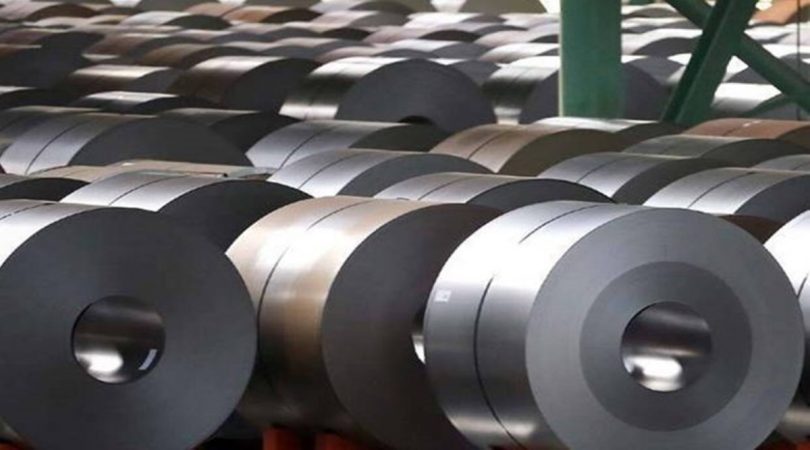[ad_1]
Concerned over the spike in input prices potentially undermining its capex bid and also hurting the MSME sector, the government on Saturday slapped an export duty on certain steel products, reduced the import duties on select raw materials for steel and plastics, and sought to shore up supplies of cement through better logistics.
It notified that an export duty of 45% will be imposed on iron ore pellet, while that of 15% will be slapped on select pig iron, flat-rolled products of iron or non-alloyed steel, bars and rods and various flat-rolled products of stainless steel. Similarly, the current export duty on iron ores and concentrates will be raised from 30% to 50%. The import duty on coke and semi-coke will be scrapped from the current 5%. All these changes will be effective from May 22.
According to a finance ministry notification, the basic customs duty on PCI coal and coking coal will be scrapped (from 2.5%) and that on naptha reduced to 1% from 2.5%. The duty on ferro-nickel will be cut to zero and that on methyloxirane (propylene oxide), an input for plastics, reduced to just 2.5%.
Elevated prices of critical inputs, especially steel and cement, have threatened to inflate the costs of the government’s own projects in the housing, roads and railways sectors, apart from weighing on private investments in infrastructure. The government has already budgeted a record capex of Rs 7.5 trillion for FY23, betting big on its multiplier effect to spur economic growth. Moreover, high prices of steel and cement have long been a sore point with consuming industries, especially engineering goods manufacturers and realty developers, among others.
“Measures are being taken up to improve the availability of #Cement and through better logistics to reduce the cost of cement,” finance minister Nirmala Sitharaman tweeted. “Similarly, we are calibrating customs duty on raw materials & intermediaries for iron & steel to reduce their prices. Import duty on some raw materials of steel will be reduced. Export duty on some steel products will be levied,” she said.
Only a day before, Sitharaman had expressed concerns that input costs were rising despite India having a huge capacity to cater for both domestic and export demands and called for the need to ensure that there were no monopolistic or duopolistic tendencies leading to price rise and supply-side manipulations.
Saturday’s announcements come days after official data showed the wholesale price index (WPI), dominated by raw materials and intermediate goods, hit an over 30-year high of 15.08% in April. While core WPI inflation remained elevated at 11.1%, core retail inflation hit an almost eight-year high of 6.97%.
The average monthly prices of hot rolled coil (HRC)—a benchmark for flat steel—may have eased from Rs 76,000 per tonne in April but they still remain elevated at about Rs 72,500 in May, compared with Rs 66,000 in May 2021 and just Rs 35,900 in June 2020 when a Covid-induced lockdown was lifted, data by SteelMint show. Similarly, according to private realty developers’ body CREDAI, cement prices have shot up to about Rs 400 per bag from Rs 325 at the end of December 2021.
Industry executives fear that prices of cement and steel could go up further on account of high coal prices. These two key inputs make up an estimated 30% of the output cost of realty projects. Even contractors of government projects, including the Pradhan Mantri Awas Yojana, or that of state-run entities like NHAI have started seeking more for the projects they are executing.
India’s finished steel exports jumped by 25% on year in FY22 to 13.5 million tonnes. Imports of steel, however, eased 1.7% to 4.69 million tonnes last fiscal.
Sitharaman also tweeted: “We are also reducing the customs duty on raw materials & intermediaries for plastic products where our import dependence is high. This will result in reduction of cost of final products.”
[ad_2]
Source link








